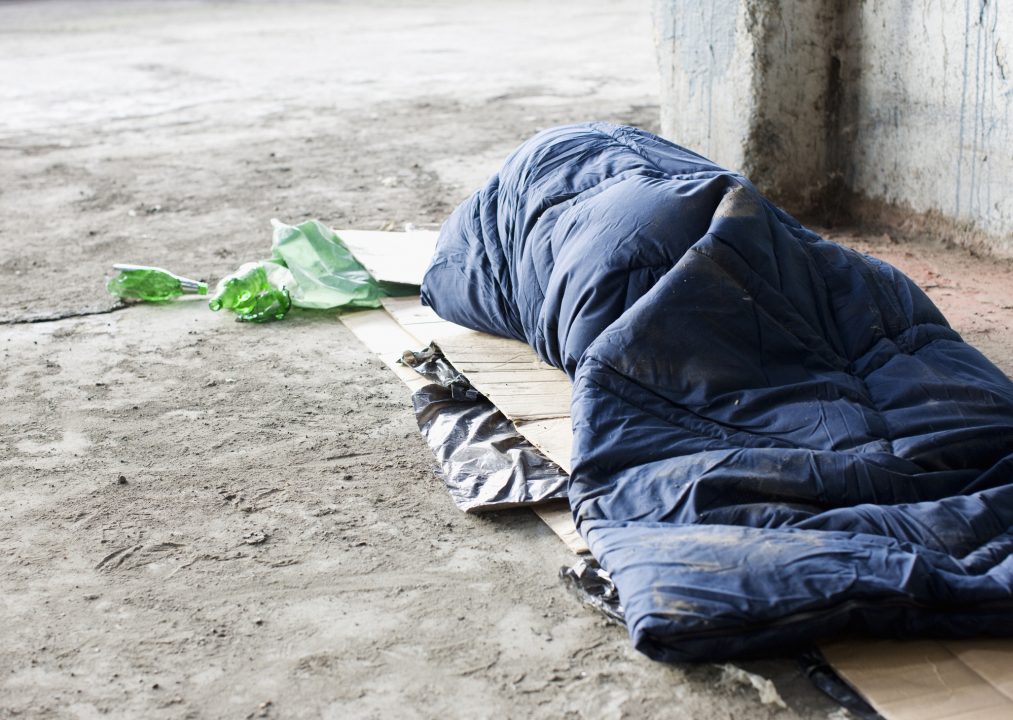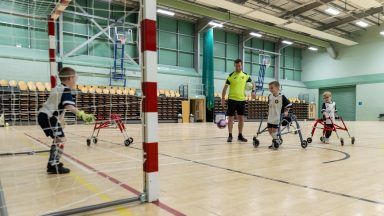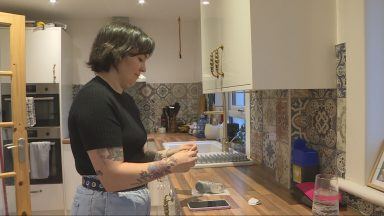Glasgow council is getting more than 200 legal threats a month over its failure to provide suitable accommodation to the homeless, it has been revealed.
It comes as the city’s homelessness chief warned the housing emergency won’t be a “quick fix”.
Councillors declared an emergency in November 2023 due to “unprecedented” pressure on homelessness services, which was “exacerbated” by a Home Office decision to speed up asylum claims.
Homeless applications have since soared in the city, leading to a “rapidly” increased use of temporary accommodation, including unsuitable hotels and B&Bs.
When the declaration was made, there were 793 households in B&Bs. One year later, that figure had reached 1,496.
In November 2024, accommodation wasn’t provided to homeless applicants on 1,086 occasions.
More than 200 threats of judicial review are received per month over unsuitable accommodation or failures to provide temporary homes, a new report has revealed.
Cllr Allan Casey, SNP, the council’s homelessness convener, called for “proper funding”, as the number of people seeking help continues to rise.
He said the accelerated process was “a good thing for people that had been waiting for a long time”, but it meant “a lot of decisions concentrated into a short period”.
He said progress is being made “in terms of better access to settled accommodation” but the number of applications are also increasing.
The use of B&Bs and hotels was increased to “avoid rough sleeping as much as possible”, Cllr Casey added.
However, that comes at a significant cost, which he said could become “really unsustainable” if it continues to rise.
He wants the UK Government to “step up” and “fund Glasgow properly” for the work the city does. He also urged the government to “make time” to meet with the council’s leadership.
The cost of dealing with the impact of Home Office asylum decisions is estimated to hit £26.5m in 2024/25 alone.
Currently, the Home Office gives £750 per year for each asylum seeker, with the difference — described as “significantly more” by Cllr Casey — met by the city.
War in Ukraine and the cost of living crisis had increased pressures on services before the Home Office sped up the processing of claims. An action plan has now been published which sets out efforts to address the emergency.
It is being presented to the Integration Joint Board — a partnership between the council and NHS which runs health and social care services — on Wednesday, January 29.
A report to the committee states the most recent Home Office data shows 95% of asylum seekers in Scotland are currently accommodated in Glasgow, with 4,103 currently.
In 2023/24, there were also 599 homelessness applications from those granted leave to remain outwith the city. Another 527 applications had been made up to December 17 in 2024/25. No extra funding is received for these cases.
The report suggests this is due to “more progressive homelessness legislation in Scotland” — which has no ‘priority need’ test and a legal right to housing for all those who are unintentionally homeless.
It adds “significant hostile behaviour” towards refugees in some cities in England also appears to be “a factor which is driving demand towards Glasgow”.
Changes to rules on ‘local connection’ in Scotland mean people can now apply as homeless to any council in the country. Since then, Glasgow has received 336 applications which could previously have been referred back to other councils.
Cllr Casey said while the legislation is “the right thing to do”, it must come with “a way that councils can be compensated”, either by other local authorities or the Scottish Government.
Officials state while Glasgow will continue to be a “welcoming city”, it is “challenging” to continue to “commit to the national framework in relation to asylum seekers and refugees”.
They describe the situation as “unsustainable for the city of Glasgow” and putting “significant strain” on homelessness services.
Cllr Casey said he will work with all organisations, including social landlords and the charity sector, to “turn the dial on this”. “For me, this is our number one priority,” he added.
The action plan includes working with social landlords to maximise the number of properties for homeless people. Currently, around 50% of social housing is let to homeless households.
They will also be supported to buy more homes on the open market while work is ongoing to reduce the number of empty homes in the city.
Council-owned sites are being considered for repurposing into accommodation for larger families. A 10-year strategy on reducing the use of unsuitable temporary accommodation is also being finalised.
Cllr Casey said the Hamish Allan building, a former homeless shelter which was taken over by activists during COP26, could be converted into flats to provide “better temporary accommodation”.
He added £11.5m of acquisition funding had been secured from the Scottish Government to buy private sector properties to increase the supply of social rented homes.
Bianca Lopez, the Glasgow chair of tenants’ union Living Rent, said the housing crisis “remains completely out of control” despite the emergency declaration.
She added: “Glasgow City Council could help reduce the shortage of affordable housing by committing to the government’s national planning framework, and ensuring that all new developments contain at least 25% affordable housing — but so far they refuse to do so.”
The council has previously said almost half of all homes built in Glasgow in recent years have been affordable, and that trend will continue.
Housing charity Shelter Scotland’s director, Alison Watson, said the situation in Glasgow has “continued to deteriorate” and “without more social homes that trend will inevitably continue”.
The charity had urged the council to publish its action plan, and welcomed commitments on buying and building more social homes. However, it raised concerns over the lack of specific targets for reducing the number of children in temporary accommodation.
“We must ensure there is meaningful progress, otherwise the housing emergency will continue to spiral with children being on the frontline,” Ms Watson said. She added councils “can’t be expected to pick up the pieces on their own” and all levels of government must provide support.
Cllr Ann Jenkins, Labour’s housing spokeswoman, called on the council to “actively use” compulsory purchase powers to bring empty properties back into use.
“From record homelessness to soaring rents and house prices, the impact of Glasgow’s housing shortage is clear. Yet instead of fixing the crisis the SNP is fuelling it,” she said. “Their failure to build more homes is catastrophic incompetence.”
Glasgow received 6,708 homeless applications in 2022/23, rising to 7,725 in 2023/24.
The number is projected to reach 9,050 over 2024/25.
Follow STV News on WhatsApp
Scan the QR code on your mobile device for all the latest news from around the country


 iStock
iStock
























